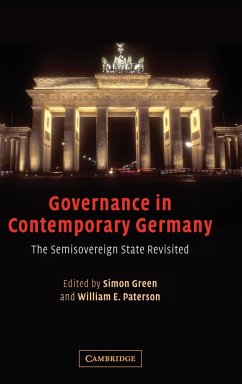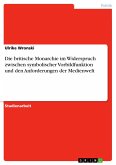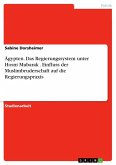Throughout the 1970s and 1980s, West Germany was considered to be one of the world's most successful economic and political systems. In his seminal 1987 analysis of West Germany's 'semisovereign' system of governance, Peter Katzenstein attributed this success to a combination of a fragmented polity, consensus politics and incremental policy changes. However, unification in 1990 has both changed Germany's institutional configuration and created economic and social challenges on a huge scale. This volume therefore asks whether semisovereignty still exists in contemporary Germany and, crucially, whether it remains an asset in terms of addressing these challenges. By shadowing and building on the original study, an eminent team of British, German and American scholars analyses institutional changes and the resulting policy developments in key sectors, with Peter Katzenstein himself providing the conclusion. Together, the chapters provide a landmark assessment of the outcomes produced by one of the world's most important countries.
'... Peter Katzenstein provided a classic analysis of the political and institutional factors which underpinned West Germany's remarkable post-war renaissance and created a distinctive polity and society. After almost two decades this book returns to that analysis and asks how far it is still relevant to understanding the politics of Germany today and the challenges it faces, in the era after unification and the end of the cold war. These essays present an authoritative, penetrating and wide-ranging exploration of Modell Deutschland and its prospects, and Peter Katzenstein supplies a trenchant and illuminating response, which reaffirms the central themes of his earlier analysis. There are few questions in European politics as important as the future development of Germany, and this book makes a timely and valuable contribution to our understanding of Germany's problems as well as Germany's potential.' Andrew Gamble, University of Sheffield








